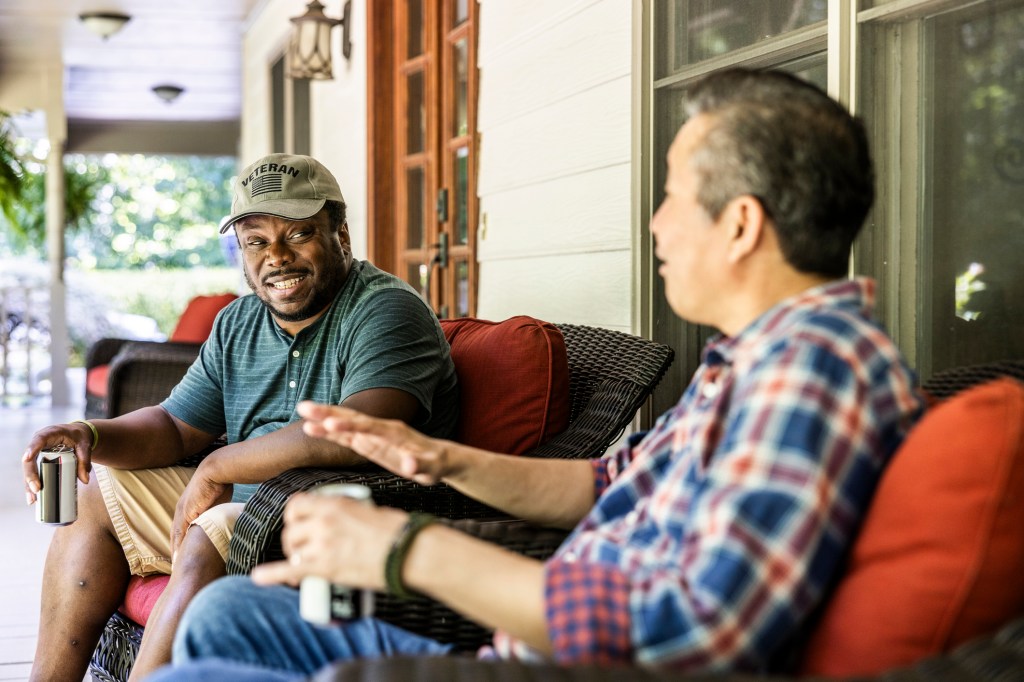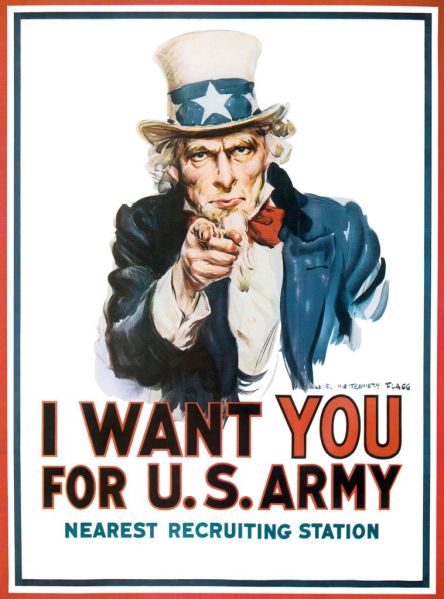Veterans Day uncovers a paradox in America’s relationship with former servicemen and women. According to research from More in Common, where I work, fielded in 2022, 81 percent of Americans feel it is important that non-veterans engage with veterans, yet roughly half the country rarely, if ever, talks with them. The shrinking size of the veteran population and the fact that fewer Americans have personal relationships with veterans explains part of this disconnect.
But another explanation is at play: Many Americans don’t know how to talk with veterans. In our survey, one in five of those who had never talked with a veteran said they were not sure what to say. A similar number said they were concerned they might bring back uncomfortable memories.
As a veteran, part of me struggles whenever I see surveys like these—we are all American citizens and our military serves, and is subordinate to, the civilian society. So how can it be hard to start a conversation? Yet I appreciate that the dynamic is more complex. Should Americans say, “Thank you for your service” for example? A quick search online finds serious and well-intentioned articles recommending both yes and no.
Part of the challenge is that the most prominent depictions of veterans often illustrate barriers to dialogue. Consider a scene from the movie The Hurt Locker—which depicts a fictional American explosive ordnance disposal unit in Iraq and won six Oscars in 2010—following the main character’s return home from deployment. He stands in the middle of a grocery store aisle and stares at rows and rows of cereal, lost in the contrast between the life and death experiences of war and the seeming monotony of normal life. The scene captures something real and important, but if most Americans have this in mind when they think about talking with a veteran, it’s easy to see why many would feel intimidated or anxious.
We need better mental models for “normal” conversations between non-veterans and veterans, ones that enable both to find common ground and talk with each other. I asked Matt Abrahams, author of the book Think Faster, Talk Smarter and a leading communications expert and coach, for advice on what such models could look like. In essence, how do we cultivate different forms of meaningful dialogue between veterans and the broader society?
First, enable these conversations to emerge organically from shared experiences. Matt wagers that dialogue about military service will flow more naturally in contexts where non-veterans can initiate a conversation by talking about an easily relatable topic. Put into practice, this means that alongside Veterans Day events that call out and explicitly celebrate veterans (e.g., parades or corporate events where veterans receive standing ovations), communities should create events where veterans and non-veterans start on equal footing. This could be company barbecues, music events, or other such activities. Said differently, it’s easier to start a conversation between a veteran and a non-veteran if it can start with “how’s the burger?” as opposed to “what did you do in the military?”
Second, offer veterans different settings to talk about their service. Matt suggests that “anytime a veteran can connect what they did in the military to everyday actions at a company or in life, that can help people [non-veterans] feel comfortable.” In my own experience a highly under-leveraged way to put this into practice is through humor. When I was a young Army infantry officer, for example, I accidently handed out engine lubricant in lieu of hand sanitizer before a unit meal during training. Had some non-commissioned officers not quickly noticed the mistake, we would have had a very unpleasant breakfast experience.
At a time when so much of military life seems foreign to most Americans, this kind of story is relatable because everyone knows what it’s like to make a rookie mistake. And it shows that alongside its intense, heroic, and tragic moments, military service is often hilarious. One need only watch a few episodes of the short-lived television series Enlisted to get a sense for the many ways military life can be absurdly comedic. To encourage dialogue between veterans and non-veterans, companies, civic organizations, and other institutions could invite veterans to share funny stories from military life that speak to their current work or life experiences.
Finally, let the conversation itself, and not a specific outcome, be the goal. Over the years since I transitioned out of the military, I’ve navigated situations where people put unnecessary pressure on a conversation. This often comes from good intentions: Typically, I find non-veterans want to ensure they convey a deep sense of appreciation or, alternatively, that they feel they need to offer interesting commentary on the military. Matt suggests that instead of worrying about what the dialogue accomplishes, people heed advice from relationship coach and author Rachel Greenwald, who suggests focusing “on being interested, not interesting.” Veterans, like all people, want to feel heard in a dialogue—this puts the emphasis on asking questions, listening, and paying attention to what is being said.
America’s veteran population is set to decline from approximately 19.5 million to 13.6 million over the next 25 years. If we want to ensure a healthy relationship between the veteran community and the broader society, it will increasingly fall to non-veterans to connect with and talk to veterans about military life. Today we too often allow narrow, and often false, conceptions of what such conversations look like to stop us from talking.
Yet there are concrete, practical steps we can take to expand our mental models. We can hold Enlisted alongside The Hurt Locker in our minds and see a Darius Rucker concert as just as much a venue for talking with veterans as a Veterans Day parade. In doing so we set the conditions for more and more Americans, veterans and non-veterans, to engage in meaningful dialogue.








Please note that we at The Dispatch hold ourselves, our work, and our commenters to a higher standard than other places on the internet. We welcome comments that foster genuine debate or discussion—including comments critical of us or our work—but responses that include ad hominem attacks on fellow Dispatch members or are intended to stoke fear and anger may be moderated.